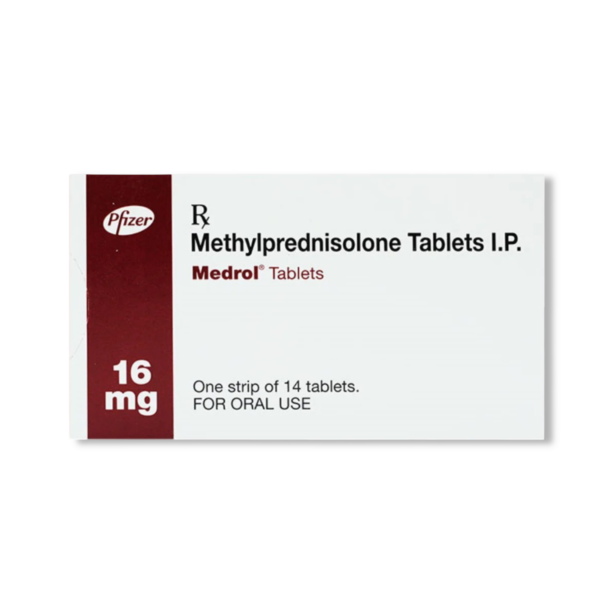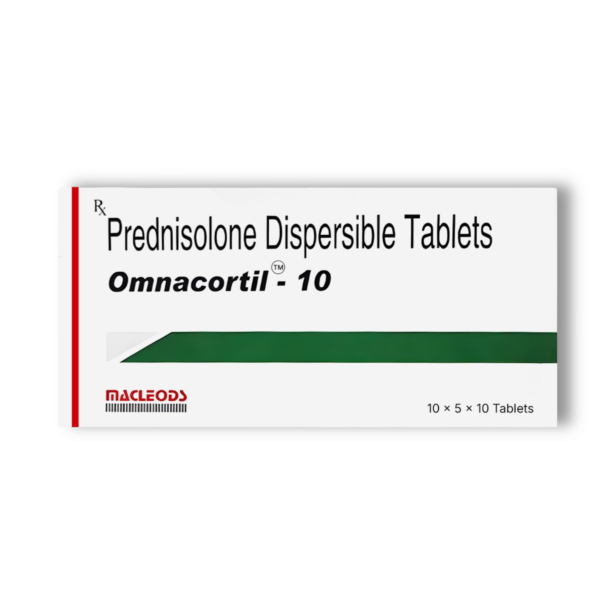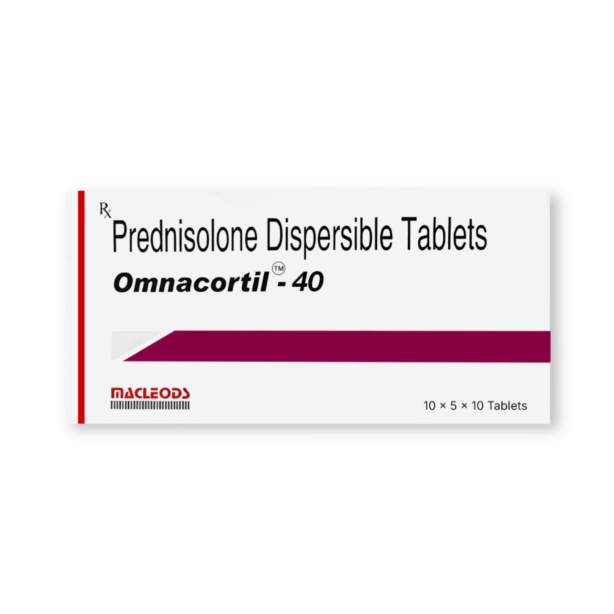If you have been prescribed Medrol, understanding the proper dosage is crucial for your treatment success. This strong synthetic corticosteroid effectively reduces inflammation and suppresses immune responses for conditions ranging from severe allergic reactions to Arthritis, respiratory disorders, and autoimmune diseases.
Available in tablets, dose packs, and injectable formulations, Medrol mimics natural hormones your adrenal glands produce to decrease inflammation and affect cellular functions throughout the body.
While Medrol can provide significant relief, using the correct dose for your specific condition is essential to maximize benefits while minimizing potential risks. Dosages vary widely depending on the condition, severity, body weight, and how you respond to treatment.
This article will discuss key Medrol dosage recommendations and how to use the medication correctly, so read on.
Medrol Dosage for respiratory conditions
For acute Asthma flare-ups, adults are typically prescribed Medrol or Methylprednisolone at 40–60 mg per day for 5 to 10 days. In children, the usual dosage is 1–2 mg per kg of body weight daily (up to a max of 60 mg) for 3 to 10 days.
In cases of COPD or Chronic Obstructive Pulmonary Disease flare-ups, 40 mg daily for 5 days in adults, noting that shorter courses (5 days) may be as practical as longer ones (10–14 days); alternatively, a Medrol dose pack over 6 days can be used.
Treatment options for acute bronchitis with significant inflammation include a tapering regimen (24 mg on day 1, reducing to 4 mg by day 6 via a Medrol dose pack) or a fixed dose of 16–32 mg daily for 5–7 days, depending on severity.
Save up to 90% on your medicine bills

Medrol 16 Mg Tablet

Omnacortil 10 Mg Tablet

Depo-Medrol 40 Mg Injection 1ml

Omnacortil 40 Mg Tablet
Dosage for inflammatory conditions
Adults are recommended 4-48 mg daily for general inflammatory conditions as a single dose or divided throughout the day. More severe cases may require initial doses up to 1 mg/kg/day (about 60-80 mg for average adults), followed by a gradual dose reduction.
The FDA-approved labeling for Medrol states that higher initial doses may be necessary for acute severe conditions requiring rapid effects with subsequent reduction to the lowest effective dose.
Medrol dose pack dosage for allergic reaction
Adults typically take 4 mg- 16 mg daily for severe allergic reactions like hay fever until symptoms subside. Children usually receive 0.5-1 mg/kg/day divided into multiple doses.
Adults with severe skin allergies may initially take 16-40 mg daily, tapering to the lowest effective dose. Short courses are preferred to minimize side effects.
Medrol Dosage for Arthritis and Rheumatic disorders
Initial doses of Medrol for Rheumatoid Arthritis typically range from 7.5 to 60 mg daily, depending on disease severity, with maintenance doses as low as 4 to 8 mg daily.
For Osteoarthritis flares, 4-48 mg daily for 5-7 days is standard during acute episodes.
The standard approach for gout is 16-40 mg daily for 2-5 days, tapering as symptoms resolve.
Medrol dose pack dosage for dental pain and inflammation
Adults typically take Medrol 16 mg – 40 mg daily for dental procedures or conditions with significant inflammation for 3-5 days.
After dental surgery, a dose pack starting at 24 mg and tapering over 6 days is standard.
Medrol dose pack for sinus infection dosage
For acute Sinusitis with significant inflammation, adults often follow a standard dose pack schedule (24 mg on day 1, tapering to 4 mg by day 6).
More severe cases may require higher initial 30-40 mg doses with gradual tapering.
Medrol dose pack dosage instructions
The standard Medrol dose pack contains 21 tablets (4 mg each) taken over 6 days in a specific tapering schedule. On day 1, you’ll take 24 mg (6 tablets) divided throughout the day, gradually reducing to 4 mg (1 tablet) by day 6.
This tapering schedule helps manage inflammation while minimizing the possibilities of withdrawal symptoms and adrenal suppression.
Depo-Medrol injection dosage
Depo-Medrol injection dosages vary by treatment site. For joint injections, the dosage depends on joint size:
- Small joints: 4-10 mg
- Medium joints: 10-40 mg
- Large joints: 20-80 mg
Doses range from 4 to 30 mg for soft tissue conditions like bursitis or tendonitis, depending on the size of the affected area.
Injections are typically not repeated more frequently than every 1-5 weeks to minimize potential complications.
How to take Medrol correctly
To maximize benefits and minimize risks:
- Take Medrol as your doctor prescribes, especially when using a dose pack.
- Always take it with food to help prevent stomach irritation.
- Try to take it at the same time each day, preferably in the morning, to align with your body’s natural cortisol rhythm.
- Do not stop Medrol suddenly; your doctor will guide you through a proper tapering schedule based on your dose, treatment duration, and condition.
- Complete the full course of treatment, even if your symptoms improve before it ends.
- Store the medication at room temperature, away from moisture and direct light.
Always consult your healthcare provider if you experience any side effects or have questions during your Medrol treatment.
Conclusion
Understanding the appropriate Medrol dosage for your condition is crucial for safe and effective treatment. While Methylprednisolone can significantly improve symptoms for many inflammatory and immune-related conditions, using the correct dose for the shortest necessary time helps minimize potential side effects.
Always follow your healthcare provider’s instructions precisely, especially regarding dose amounts, timing, and the tapering schedule. Regular monitoring and open communication with your doctor about any concerns or side effects will help get the best possible outcome from the treatment.
Remember that dosage requirements vary widely between individuals and conditions, so your prescribed regimen may differ from general guidelines. Never adjust your dose without medical supervision, and complete the full course of treatment as directed for optimal results and safety.

Frequently Asked Questions
How long does a Medrol dose pack stay in your system?
A Medrol dose pack typically remains in your system for 1-2 days after your last dose. However, the biological effects can last 1-4 weeks. Individual metabolism, liver function, and kidney health affect how quickly your body processes the medication.
What drugs, substances, or supplements interact with Medrol?
Medrol interacts with blood thinners, Nonsteroidal Anti-Inflammatory drugs, antifungals, certain antibiotics, antidiabetic medications, and some seizure medications. It might also interact with St. John’s Wort, grapefruit juice, and vaccines, potentially affecting medication levels or effectiveness.
Can I take over-the-counter pain relievers with Medrol?
No, consult your doctor before combining Medrol with any pain relievers. Acetaminophen (Tylenol) is generally safer than NSAIDs (Ibuprofen, Aspirin), which may increase the risk of stomach bleeding when taken with corticosteroids like Medrol.
How should I manage my diet while taking Medrol?
While taking Medrol, limit sodium intake and consume adequate calcium and Vitamin D to protect bone health. Go for complex carbohydrates over simple sugars to manage potential blood sugar increases, and eat protein-rich foods to minimize muscle loss.
Is it safe to receive vaccines while taking Medrol?
No, live vaccines should be avoided while taking Medrol, especially at higher doses, as they may cause infections due to suppressed immune function. Inactivated vaccines may be less effective. Consult your healthcare provider about vaccine timing around your treatment.
When referencing outside resources, GoodrxMedicine always provides full citations. To learn more about the measures we use to maintain the quality of our content, please review our Content Information Policy.











